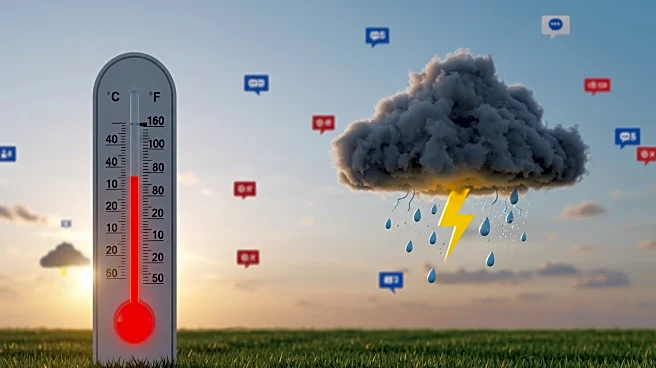What is the story about?
What's Happening?
A recent study conducted by researchers from MIT, Duke, and Harvard has found a correlation between high temperatures and increased negativity on social media platforms like Twitter and Weibo. The study, published in OneEarth, analyzed data from 157 countries and identified 35°C as the trigger temperature for negative sentiments. This research highlights how physiological responses to heat can influence mood and behavior, providing a new perspective on how environmental factors affect social interactions online.
Why It's Important?
The findings of this study have significant implications for understanding the impact of climate change on human behavior and social dynamics. As global temperatures rise, the increase in negativity could exacerbate existing social and political tensions, affecting decision-making and public policy. This research underscores the need for strategies to mitigate heat stress and its psychological effects, which could help improve societal well-being and stability. Policymakers and social media platforms might need to consider these findings when addressing climate-related challenges and their influence on public discourse.















